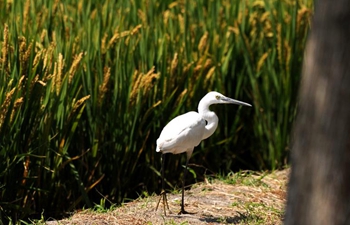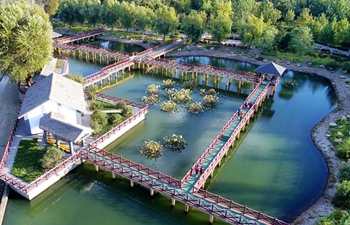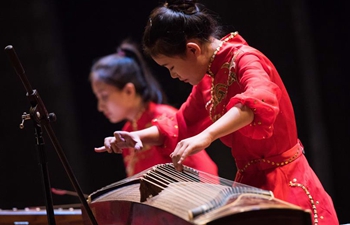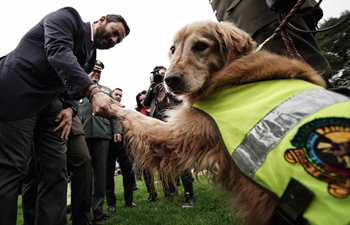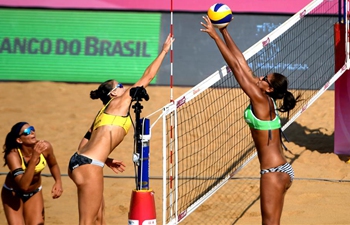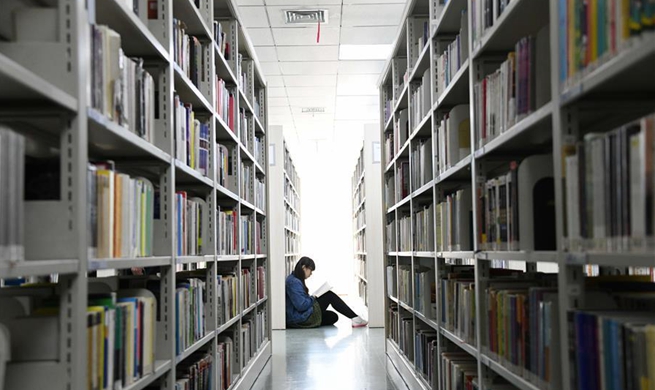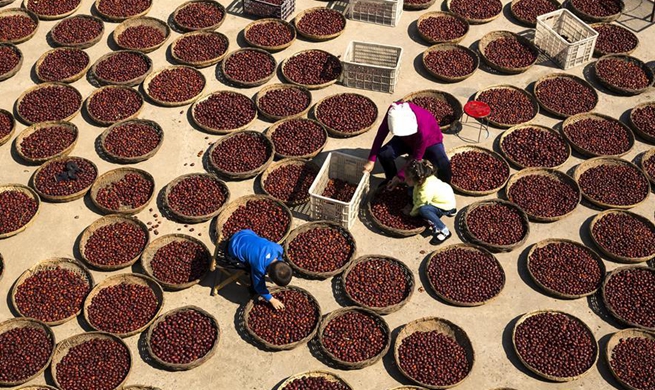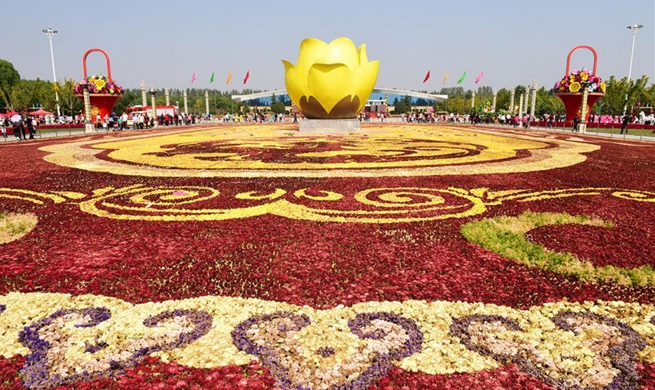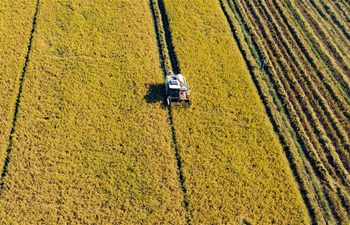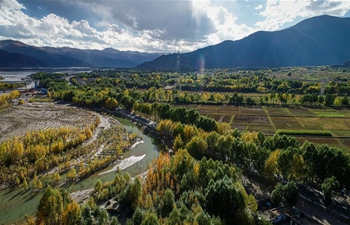by Alexia Vlachou, Valentini Anagnostopoulou
ATHENS, Oct. 5 (Xinhua) -- On the occasion of World Teachers' Day held annually on Oct. 5 since 1994, Greek teacher Eleni Karagianni offered insight into how education can be the key to the societal integration of refugee children, and what challenges children and teachers have to overcome.
Karagianni, an art educator and refugee education coordinator, met with Xinhua on Thursday at the refugee camp of Schisto, a suburb near Piraeus port.
"Education is important because, as studies have shown, with two or three years of school attendance the standard of living, health conditions and many other factors can be improved," Karagianni explained.
Thousands of refugee children who are stranded in Greece after the closure of the borders along the Western Balkan route in February 2016 attend educational programs, as part of the Greek government's aim to integrate them in the country's education system and in wider society.
During the 2017-2018 school year, the number of children estimated to have attended formal education was 8,017, about 40 percent of the total 20,000 asylum-seeking and refugee children currently in Greece, according to figures from the education ministry.
A total of 5,291 attended morning classes alongside Greek children, while 2,026 refugee children joined afternoon classes in the reception facilities for refugee education.
No official data have yet been released for the 2018-2019 school year as the population in the camps changes constantly and reception classes and facilities open gradually.
With years of experience in intercultural education, Karagianni began helping with refugees from the day they first began arriving in Piraeus port from the islands of the Northern Aegean Sea in 2015, starting as a volunteer before being appointed coordinator of Schisto in 2016.
She is responsible for the education of 170 refugee children from Afghanistan, Syria and Iran who live in the camp with their families while waiting for a better future.
Education can help them see their future perspectives and dream of a new life with hope.
As part of her daily routine, Karagianni acts as a bridge between refugees and the authorities. "We are close to the family, we listen to their problems, we can intervene when it is necessary, or we can guide them to other facilities to get help," she said.
Even though most of them have never attended school or have been out of education for many years, they seem to adapt to the new conditions from the first weeks and months.
"Since 1998, I have been teaching children of different nationalities. You can see that childhood has a common denominator, a common nature. Children are flexible, they adapt, and they are willing to integrate into something new," she said.
This year's World Teachers' Day coincides with the 70th anniversary of the Universal Declaration of Human Rights, which includes the fundamental right to education.
Expanding on this, Karagianni said: "The right to education means the right to a qualified teacher,"
"To teach and to be near to populations who have experienced war you should adjust the education, the behavior, and the methodology," she said.
There have been some challenges and difficulties. One such difficulty arose from the refugee community regarding refugee parents' consent. Educational authorities had to explain in many cases how school works, that there are boundaries, and why their children should attend class on a daily basis.
"Education is the community for children, where they belong," she stressed.
For 11-year-old Sam from Afghanistan, who wants to become a teacher when he grows up, school is everything.
"Sam, which is your favorite subject?" Karagianni asked him. "English, Greek, computers and math," he said.
Karagianni has many happy and touching memories from her career teaching Greek children, but she will never forget what happened when the school bell rang in the camp for the first time.
"We saw children jumping from trees, running from houses, from everywhere, to make a line in the yard. They really needed the bell. And we saw also children involved in juvenile delinquency coming. That is the miracle of education and school," she said.
